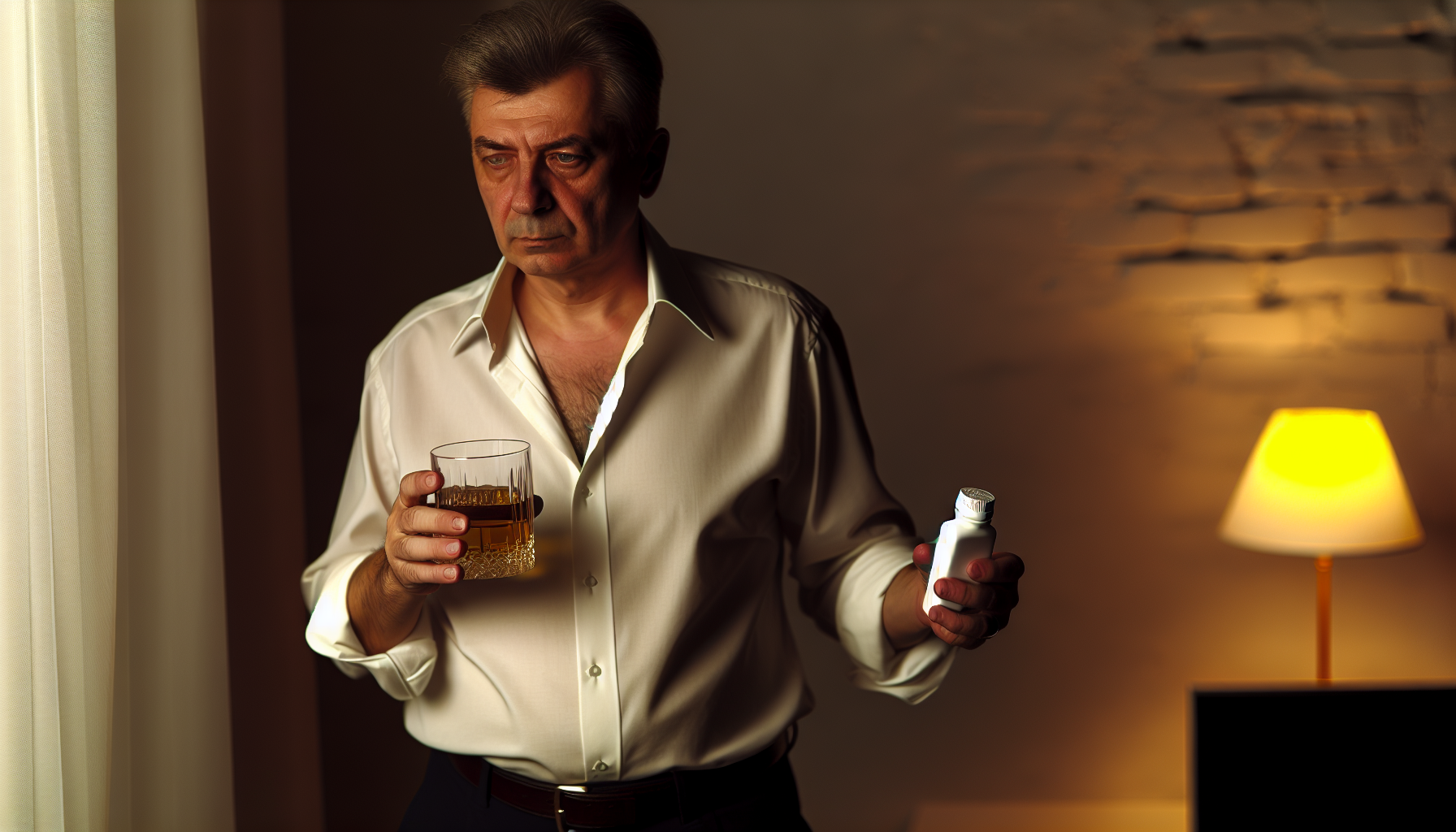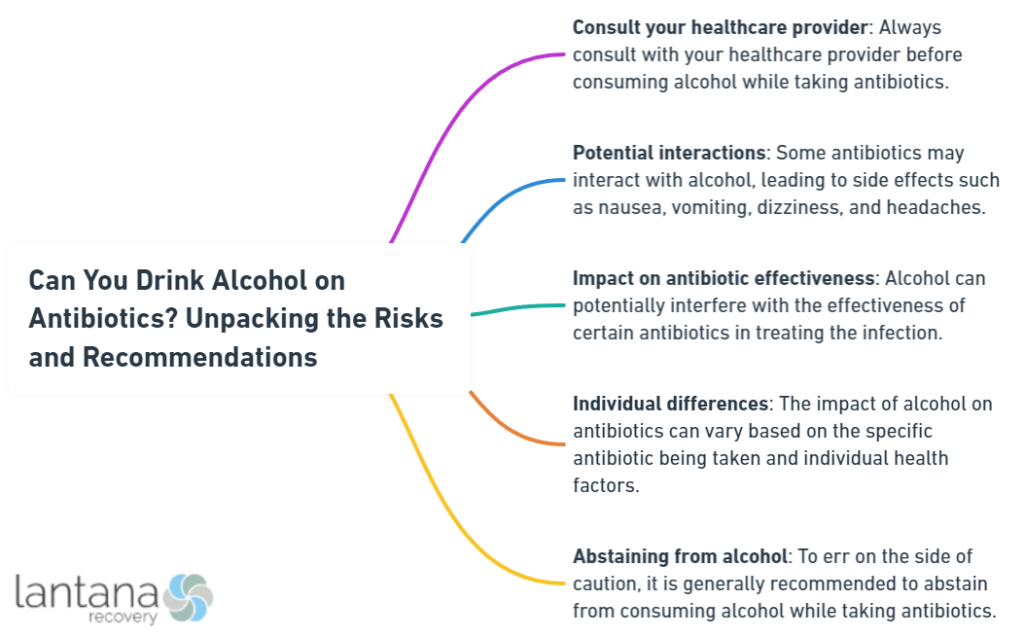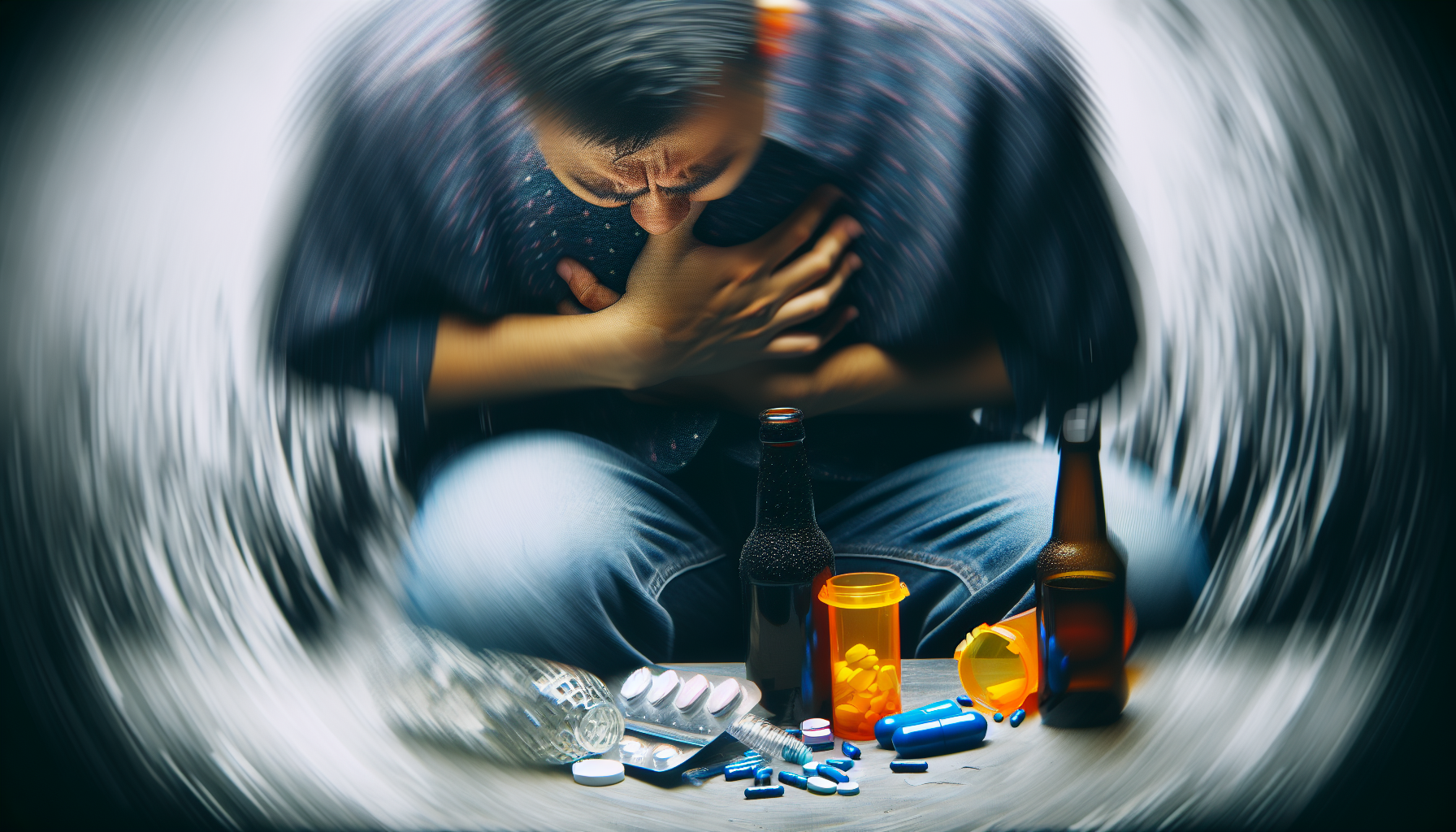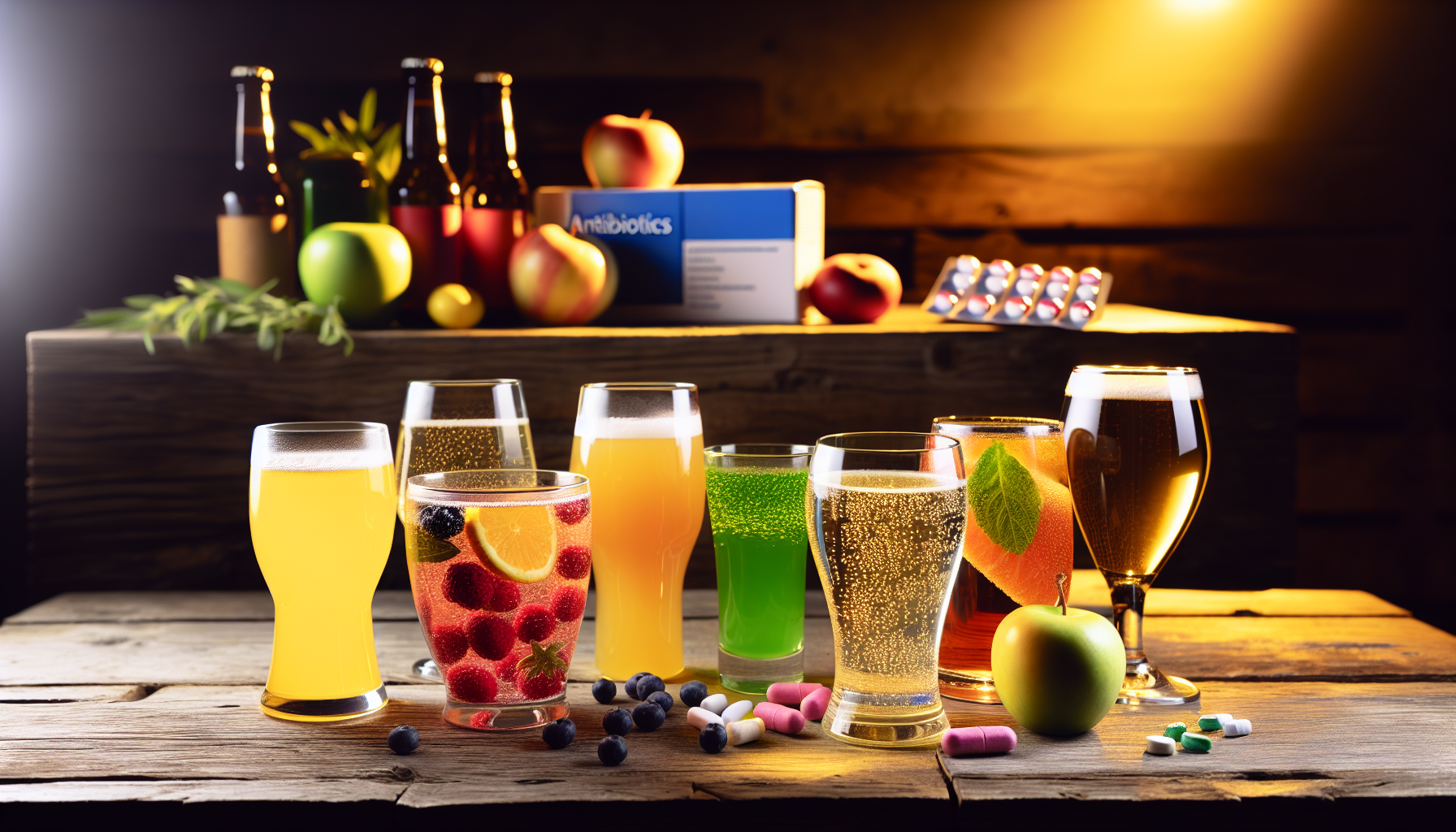When prescribed antibiotics, you may question, “can you drink alcohol on antibiotics?” The key answer is caution: alcohol can reduce the effectiveness of certain antibiotics and increase the risk of side effects. Without getting into the weeds, this article offers a practical guide on the do’s and don’ts of mixing antibiotics with alcohol, arming you with the knowledge you need for a safe treatment period.
Key Takeaways
- Alcohol can inhibit the effectiveness of antibiotics and alter their pharmacokinetics, potentially worsening side effects and interactions, particularly with certain types such as tetracyclines, linezolid, and metronidazole.
- Mixing alcohol with antibiotics can increase the risk of significant health threats, such as central nervous system depression, liver damage, and possible severe reactions like disulfiram-like effect, especially with continuous abuse.
- Consulting healthcare providers before drinking alcohol while on antibiotics is crucial for safety, and any consumption should be carefully considered regarding timing, moderation, and potential interactions with other products containing alcohol.
The Relationship Between Alcohol and Antibiotics

When prescribed antibiotics, it’s like being recruited for a covert operation against unseen microbial foes. Adding alcohol into this mix can be like throwing a wrench into your mission’s gears. Medical professionals often recommend that we avoid alcohol to arm our bodies with the best defenses in this fight. After all, the goal is to recover swiftly and effectively.
But why exactly is drinking alcohol while taking antibiotics frowned upon? Let’s uncork the bottle of facts and pour out some clarity.
How Alcohol Affects Antibiotics
Imagine alcohol as a saboteur lurking in the shadows, ready to undermine the efforts of your antibiotic agents. Not only can it directly inhibit the effectiveness of these drugs, but it also messes with their pharmacokinetics – that’s the way the body absorbs, metabolizes, and eliminates them.
In some cases, alcohol can actually increase the concentration of the antibiotic in your blood, altering how the medication is supposed to work. And if that’s not enough, our body’s breakdown of alcohol into acetaldehyde can worsen the side effects of antibiotics, turning mild nausea into a full-blown digestive revolt.

Interactions with Specific Antibiotics
While most antibiotics can coexist with a drink or two, certain antibiotics treat the presence of alcohol like an unforgivable betrayal. For instance, tetracyclines, when combined with alcohol, might not only cause gastrointestinal upsets but can also lead to liver disease and reduced effectiveness. Then there’s linezolid, which, when mixed with alcohol-laden drinks like red wine or tap beer, could skyrocket your blood pressure to alarming levels.
Or consider metronidazole, a commonly used antibiotic, which demands total abstinence; mixing it with alcohol can trigger severe reactions like rapid heart rate and vomiting. These are not your everyday hangover symptoms but potential medical emergencies.
Alcohol Rehab South Carolina
Alcohol rehab in South Carolina offers individuals struggling with alcohol addiction a path to recovery and healing. With a variety of treatment options available, including inpatient and outpatient programs, individuals can find the support they need to overcome addiction. These programs often incorporate therapy, counseling, support groups, and medical interventions to address the physical, emotional, and psychological aspects of alcohol dependence. Additionally, many alcohol rehab centers in South Carolina provide personalized treatment plans tailored to each individual’s needs and circumstances. Seeking help from a reputable alcohol rehab facility in South Carolina can be the crucial first step towards a sober and fulfilling life.
The Risks of Mixing Alcohol and Antibiotics

Straying into the risky territory of mixing alcohol with antibiotics can escalate side effects from mere nuisances to significant health threats. Some potential side effects include:
- Stomach upsets
- Dizziness
- Drowsiness
- Liver problems
- Disulfiram-like reaction, which can turn a sip of alcohol into a regrettable decision.
It is important to avoid alcohol and medication interactions, such as mixing alcohol with antibiotics, to ensure your health and safety.
Side Effects and Adverse Reactions
Diving deeper into the murky waters, the combination of alcohol and antibiotics can be like pouring oil onto a fire. The central nervous system, already taxed by the antibiotics, can be further depressed by alcohol, potentially leading to a dangerous downward spiral of cognitive function. Additionally, antibiotics like fluoroquinolones that may cause memory issues on their own could push you into a foggy state of confusion when alcohol enters the scene.
And while the occasional drink may seem harmless, continuous alcohol abuse, especially in combination with antibiotics, can lead to liver damage, manifesting as fever, chills, and jaundice. Excessive alcohol consumption, in this context, is another potential party crasher, causing symptoms from sweating and palpitations to full-blown hypotension.
Impact on Healing and Immune System
It’s not just about side effects; alcohol can also throw a wrench in the healing gears. That glass of wine might not directly stop antibiotics from working, but it can put a damper on your body’s natural healing abilities. Alcohol has a sneaky way of disrupting sleep patterns and dehydrating the body, which are both critical for recovery.
So while that drink might promise temporary relaxation, it could extend your sick leave, keeping you from feeling your best when you need it most.
Safe Alcohol Consumption While on Antibiotics
Navigating the landscape of alcohol use while on antibiotics is not about prohibition; it’s about making informed choices. While a rare drink may not spell disaster for most antibiotics, the decision to consume alcohol should never be taken lightly. It’s a matter of weighing the risks and knowing the terrain – and sometimes, that means consulting a map drawn by experts.
Consultation with Healthcare Providers
Embarking on a journey through antibiotic treatment is best done with a guide – your healthcare provider. Before you decide to raise a glass, have a conversation with your doctor or pharmacist. They can help you navigate the potential medication interactions and provide personalized advice based on your health status and the specific antibiotics you’re taking.
For instance, if you’re dealing with a severe illness or have pre-existing liver problems, that occasional drink might need to be put on hold due to the increased risk.
Factors to Consider
When planning to consume alcohol while on antibiotics, there are several factors to consider. Your age, overall health, and the specific type of antibiotic you’re taking all play a role in how alcohol might affect you. Surprisingly, even products like cold medicines and mouthwashes, often overlooked, can contain alcohol and should be avoided to prevent increasing the risk of negative side effects.
If you’ve had alcohol-antibiotic reactions in the past, especially when treating urinary tract infections, this history should inform your current decisions, steering clear of not just drinks, but also alcohol-containing over-the-counter products.
Can You Drive with Medical Marijuanas
The question of whether you can drive with medical marijuanas is a complex issue that depends on various factors. Firstly, it’s crucial to understand that driving under the influence of any substance that impairs your ability to operate a vehicle safely is illegal in most jurisdictions. Medical marijuana, like any medication, can affect individuals differently, influencing cognitive and motor functions. Even though medical marijuana is used to alleviate symptoms for certain medical conditions, its psychoactive effects can impair judgment, reaction time, and coordination, all of which are vital for safe driving. Therefore, it’s generally advised to refrain from driving after consuming medical marijuana until its effects have worn off entirely. Additionally, laws regarding driving under the influence of drugs, including medical marijuana, vary by location, with some jurisdictions having strict penalties for such offenses. It’s essential for individuals using medical marijuana to familiarize themselves with local regulations and prioritize safety behind the wheel.
Tips for Responsible Alcohol Use During Antibiotic Treatment

While abstaining from alcohol is the safest route when on antibiotics, life is full of occasions where a toast is almost obligatory. If you find yourself in such a scenario, there are ways to participate responsibly.
Opting for non-alcoholic beverages, being mindful of hidden alcohol in over-the-counter products, and understanding the importance of timing and moderation can help you avoid harmful interactions and side effects when you drink alcohol.
Timing and Moderation
When it comes to antibiotics and alcohol, timing is everything. You wouldn’t want to sabotage your recovery just as you’re reaching the finish line. The rule of thumb is to wait at least 72 hours after finishing your antibiotics before considering a drink. This gives your body ample time to process the medication and reduces the risk of negative interactions.
It’s not a sprint; it’s a marathon – and your patience can ensure a safe and healthy finish.
Recognizing Signs of Negative Reactions
As with any journey, it’s important to be aware of the warning signs that indicate you might be heading into dangerous territory. If you experience any abnormal health changes during antibiotic treatment, especially after consuming alcohol, seek immediate medical attention. This is not the time to be stoic; unusual symptoms such as severe upset stomach, trouble breathing, or a racing heart are your body’s way of signaling distress.
Is Rehab Free
The question of whether rehab is free is complex and depends on various factors. In some cases, individuals may have access to free or subsidized rehabilitation programs through government or nonprofit organizations. These programs often aim to assist those with financial need or who lack adequate insurance coverage. However, the availability of free rehab services can vary significantly depending on location and resources. Additionally, while some aspects of rehab programs may be free, there could still be associated costs for certain services, medications, or aftercare. It’s crucial for individuals seeking rehab to thoroughly research available options and inquire about any potential costs or financial assistance programs to ensure they can access the help they need without undue financial burden.
Summary
Weaving through the intricacies of antibiotics and alcohol is a complex journey. But armed with the knowledge we’ve shared, you can navigate this path with confidence. Remember, when in doubt, abstain from alcohol and consult your healthcare provider. Your body and your recovery will thank you for it.
Frequently Asked Questions
Which antibiotic can you not drink alcohol with?
You should not drink alcohol while taking antibiotics like metronidazole, tinidazole, and Bactrim, as it can result in severe reactions. This combination can increase side effects and hinder the body’s natural ability to heal itself.
Is it OK to drink alcohol while taking amoxicillin?
It is highly recommended to abstain from drinking alcohol while taking amoxicillin. Drinking alcohol can still be risky even though it is less dangerous than with many other drugs.
What to avoid while on antibiotics?
To avoid potential interactions with antibiotics, it’s best to refrain from consuming dairy products and fruit juices while taking them. These can impact the absorption of the medication.
How long should I wait after finishing antibiotics before drinking alcohol?
To be safe, wait at least 72 hours after finishing antibiotics before consuming alcohol to allow the medication to be fully processed by your body.
What should I do if I have a negative reaction after drinking alcohol while on antibiotics?
Seek immediate medical attention if you experience severe symptoms like stomach pain, difficulty breathing, or a racing heart after drinking alcohol while on antibiotics. Make sure to inform your healthcare provider about all medications and alcohol consumption.









